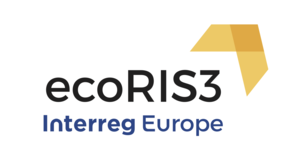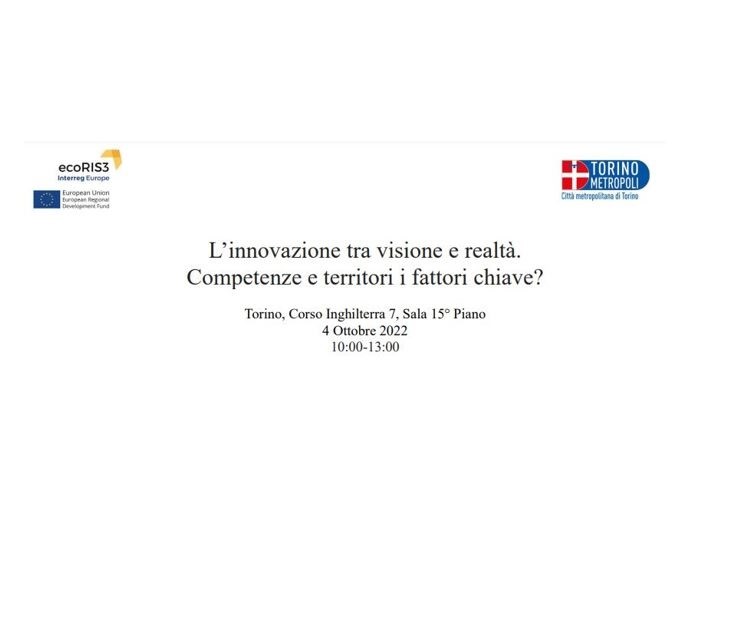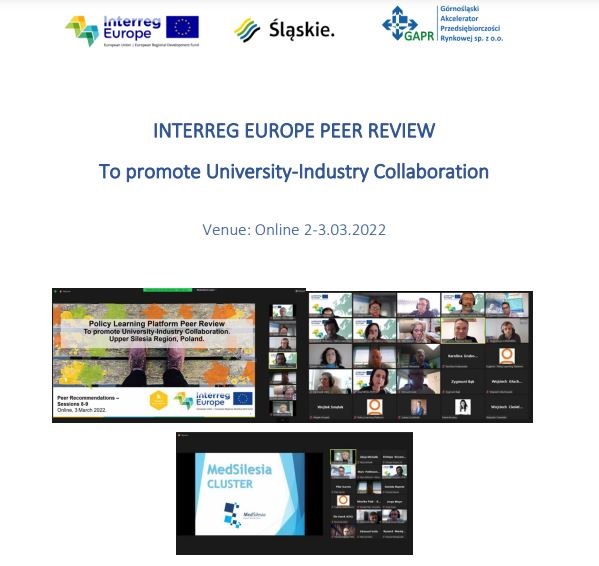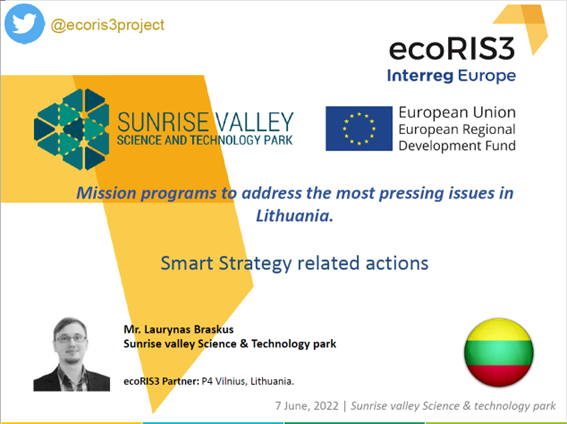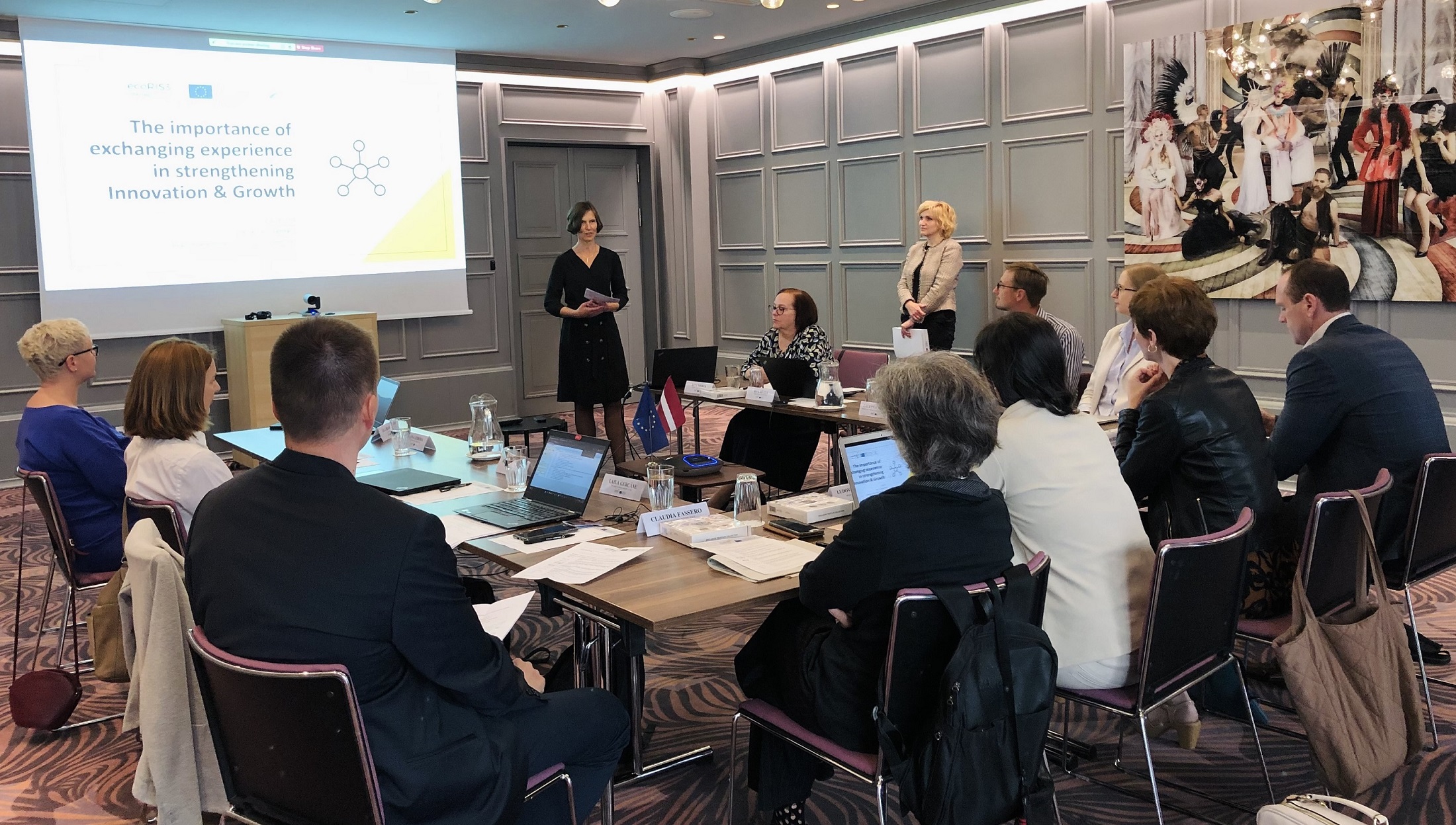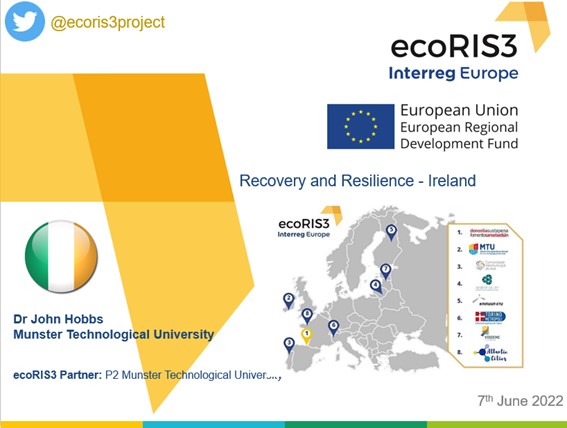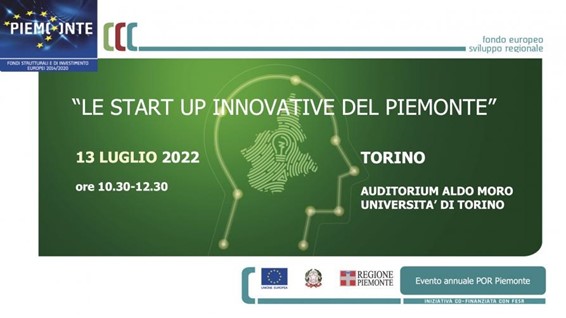Recently a study on the impact of the Covid-19 pandemic on the operations of SMEs and the innovation support system in Vidzeme has been completed. It highlights the main impact on the execution and produced results of the 2 Actions entailed in the Vidzeme Planning Region (VPR) Action Plan.

From January 2017 to December 2021, VPR produced research of local innovation ecosystems, elaborating regional SWOT analysis, and preparing an Action Plan for Further Sustainable Development of Smart Specialization in Vidzeme Region for 2020–2022. The Action Plan proposed to implement 2 Actions in Vidzeme:
• Innovation Project Manager - to promote the availability of professional support for innovation projects by offering SMEs to use services of outsourced R&D managers. The expected result was to involve at least 30 local businesses in the creation of innovative products by utilizing discoveries of research organizations
• Innovation Laboratories - to support practice-based cooperation between research organizations and SMEs with specific needs by creating a common discussion space in the form of co-working groups. The expected result was to involve at least two local businesses in real-world innovation development projects in cooperation with research organizations.

The projects had to be implemented during a particularly challenging period for businesses due to the crisis caused by the Covid-19 restrictions. Therefore, it was necessary to identify the impact of the crisis on both Actions, and assess if and how the 2019 SWOT analysis of VPR innovation ecosystem should be revised.
The study was conducted in the period from November of 2021 to January of 2022 and case-based data and opinions gathered from interviews and publicly available sources was inductively analysed to obtain key conclusions on difficulties and opportunities faced by SMEs during this period.
The main findings show that all participating SMEs of the Action “Innovation Project Manager” have been adversely affected by the Covid-19 restrictions. During interviews, the most used phrases to describe the impact were “instability”, “demand uncertainty”, “unpredictable market developments”, “changes in consumer habits”, “shortages of raw materials”, “soaring prices of raw materials and logistics services”, “risk aversion (for investments)”, “slow/chaotic process of receiving state aid”.
In addition, findings show that:
- Transportation difficulties and price increases for logistics services have significantly slowed down supplying raw materials to manufacturers, leading to a shortage of raw materials.
- Pandemic imposed limitations on human-to-human interactions in person is another factor that appears to mitigate innovation development at some level, especially if the project involves finding solutions to highly complex multi-disciplinary problems.
- Most SMEs had utilized at least one type of support instrument to mitigate the negative effects of the pandemic restrictions, but were often disappointed that support was not available when it was most needed.
- The single most required type of support for both crisis management and innovation development is the financial support. However, it is often very difficult to obtain, particularly for micro- and small-sized businesses, as revealed both by interviewed SMEs and innovation ecosystem experts.
- It was indirectly suggested both from participating SMEs and innovation ecosystem experts that it would be more convenient for companies to receive both advisory and financial support together, within one institution.
Based on study findings, it can be assumed that the support for SMEs and facilitation of innovation development as planned in Actions would have brought a greater benefit for the involved participants if it were not for the Covid-19 restrictions, as the process would have moved forward much faster.
Larger companies with more human resources and experience were able to gain much more from the Actions. They could invest more of these resources during their innovation development projects and bring the results to the market earlier, while smaller companies often did not even get to finish their projects due to lack of available resources.
Actions during Covid-19 revealed many aspects of the support system for SMEs which can be improved upon, such as:
• The heightened difficulties for micro and small businesses to benefit from various support programmes.
• The imbalanced distribution of aid programmes and the excessive number of contact points for a company to obtain the various types of support.
• The limited availability of freely accessible laboratories, small and mobile rapid prototyping tools and testing equipment, as well as testing spaces for SMEs;
• The limitations of existing digital tools to effectively bring together ideas and solve problems within groups of people from different backgrounds.
The study can be found in the ecoRIS3 website library through this Link.
